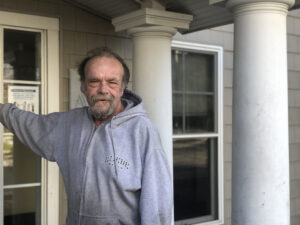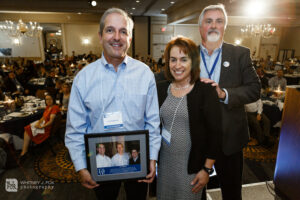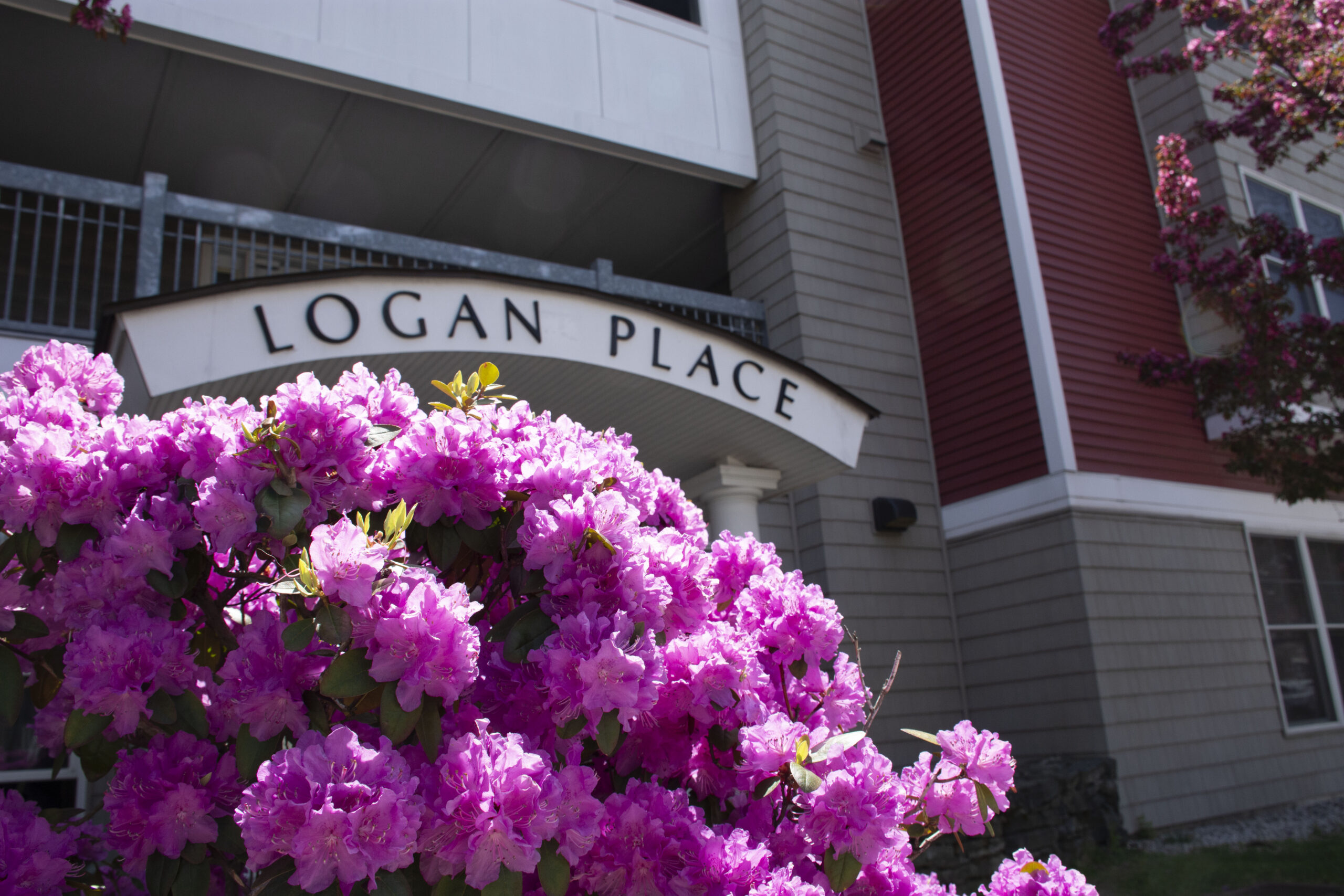Steve “Boomer” Littlefield is 67 years old. For 45 of those years, he experienced chronic homelessness and alcohol use disorder, sleeping mostly outside after some bad experiences in shelters. He survived the frigid Maine winters and nights thanks to his resourcefulness and a sleeping bag that protected him down to -65 degrees. He and his
friends suffered verbal and physical assaults from the general public.

“Housing First” is the philosophy at the center of Preble Street’s housing work. When people have a safe, stable place to call home the results are profound and far-reaching. Once out of the chaos of homelessness, where every minute is focused on basic survival or spent waiting in line for a place to sleep or a bite to eat, people can stabilize and then work toward a more fulfilling and independent future; they can leave their traffickers, overcome substance use disorder, focus on their health, education, or employment, and rebuild relationships with friends and family.
At October’s Preble Street Conference on Homelessness, Greg Payne, the senior advisor on Housing Policy for the Governor of Maine, received a round of applause when he identified the need for more Housing First programs. “The problem is that the pace at which we are getting these desperately needed and highly successful properties up and running is not nearly good enough,” said Payne. “I think that the question should become less about anticipating the fifth housing first project in Maine in 2030, but instead focusing on opening the next ten, eleven, or twelve Housing First properties in the next five or six years. We should focus on prioritizing this…And, I think that we can achieve it.”
Housing First does not mean “housing only.” The evidence-based model of housing first includes providing the support necessary to maintain housing — often in the form of intense casework and connections to critical community resources.
Securing a home is the first step in a long healing process, not the final goal. As Boomer says, “Living here, it squares me. I can go to bed when I want, I get up when I want, I take a shower when I want, if I want my chicken wings I can order them. I go to Dunkin’ Donuts for my jelly donuts and my iced coffee. I love that.” He feels dignified, and human again.
“I think there should be more places like this,” says Boomer. “Otherwise, where are people going to go?”
Read more from the Winter 2022/23 Curbside

Letter from Swannie: Curbside Winter 2022/23
For anyone paying attention over these last few years, it’s become abundantly clear that emergency shelters for people experiencing homelessness are an important part of the public health infrastructure. Shelters didn’t close during the pandemic. Shelter staff and our partners in the healthcare industry did not work remotely. We stayed open, and, in many cases,

Getting Food to People Who Need it Most
Food insecurity and hunger continue to grow in Maine; the pandemic and rising food costs are driving more people to their local food bank or pantry. Since the beginning of the pandemic, Preble Street has produced and distributed more food than ever before – over one million meals a year – and increased output by

Teen Housing and Outreach: Curbside
18-year-old Austin currently spends his nights at the Preble Street Joe Kreisler Teen Shelter or outside on the streets. “I was emancipated at 16 to get away from my family. I lived with friends for about a year and a half. When I turned 18, their parents were like ‘Ok, time to be an adult,

Board Profile: Terry Sutton, Board President
How did you get involved with Preble Street? I had Preble Street on my radar as one of the non-profits that I was most impressed with, and I wanted to be more involved in my community… but with small children and a demanding full-time job, I couldn’t see a way to get involved. Luckily, I

